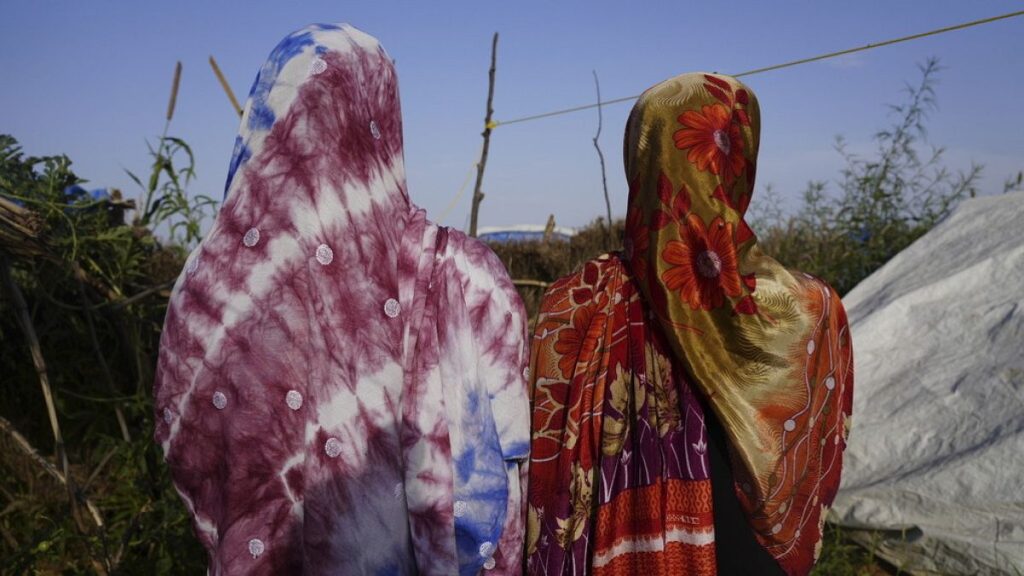The ongoing civil war in Sudan has unleashed a torrent of violence and suffering, with the Rapid Support Forces (RSF) implicated in widespread and systematic sexual atrocities. A recent Human Rights Watch (HRW) report paints a grim picture of rape, gang rape, and sexual slavery targeting women and girls, some as young as seven years old. These horrific crimes are predominantly occurring in the South Kordofan state, where HRW researchers interviewed survivors and witnesses, documenting a pattern of targeted violence against women, often in the presence of their families. These findings echo a previous UN report that also accused the RSF of large-scale sexual violence. While the Sudanese Armed Forces (SAF) have also been implicated in sexual violence, the HRW report highlights the RSF as the primary perpetrator of these atrocities, further exacerbating the humanitarian crisis gripping the nation.
The HRW report details harrowing accounts of women being subjected to repeated rape, held as sex slaves, and witnessing the murder of their family members who attempted to defend them. One survivor, a 35-year-old Nuba woman, recounted the brutal killing of her husband and son before being subjected to gang rape by six RSF fighters. This horrific incident underscores the targeted nature of the violence, often based on ethnicity. The accounts collected by HRW reveal a calculated strategy of using sexual violence as a weapon of war, designed to terrorize communities and exert control over civilian populations. The widespread nature of these crimes and the impunity enjoyed by the perpetrators further contribute to the climate of fear and desperation prevalent in conflict zones.
One particularly disturbing case highlighted in the report is that of Hania, an 18-year-old who was three months pregnant when she was abducted by RSF fighters and held as a sex slave at a military base. She described a systematized process of sexual exploitation, where girls and women were routinely selected for rape. Hania and other captives were subjected to inhumane treatment, chained together, malnourished, and denied basic human dignity. Her account of being beaten for resisting rape and the subsequent hospitalization underscores the brutality and disregard for human life that characterize these atrocities. The fact that Hania and her friend, who also became pregnant during their captivity, were ultimately released due to a soldier’s pity further highlights the arbitrary nature of justice within the RSF’s ranks.
The HRW report documented at least 79 cases of rape against women and girls aged between 7 and 50, with the majority of incidents taking place near the town of Habila in South Kordofan. This number likely represents only a fraction of the actual number of cases, as stigma and fear of reprisal often prevent survivors from coming forward. The systemic nature of these atrocities and the impunity enjoyed by the perpetrators highlight the urgent need for international intervention and accountability mechanisms. The report emphasizes the devastating impact of these crimes on survivors, their families, and the wider community. The lack of access to essential services, including medical and psychological support, further compounds the suffering of survivors.
The implications of the HRW report extend beyond the immediate physical and psychological trauma inflicted on survivors. The widespread use of sexual violence as a weapon of war has devastating long-term consequences for communities, eroding social cohesion and perpetuating cycles of violence. The report underscores the urgent need for comprehensive measures to address the root causes of conflict, protect civilians, and ensure accountability for perpetrators of these heinous crimes. The international community must take concrete action to end the impunity enjoyed by the RSF and other armed groups involved in the conflict. This includes supporting independent investigations, imposing targeted sanctions, and pursuing criminal prosecutions against those responsible for these atrocities.
Beyond accountability, the international community must prioritize the provision of comprehensive support services for survivors, including medical care, psychosocial support, and legal assistance. This requires increased funding for humanitarian organizations working on the ground and ensuring that survivors have access to safe and confidential reporting mechanisms. The ongoing conflict in Sudan demands a multifaceted response that addresses both the immediate needs of survivors and the underlying drivers of violence. Only through a concerted effort can the cycle of violence be broken and the survivors of these atrocities begin the long and difficult process of healing and rebuilding their lives.














